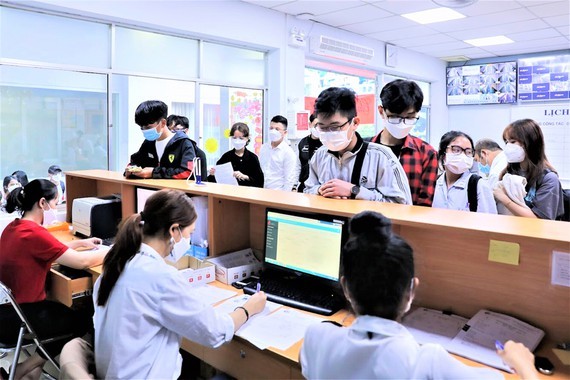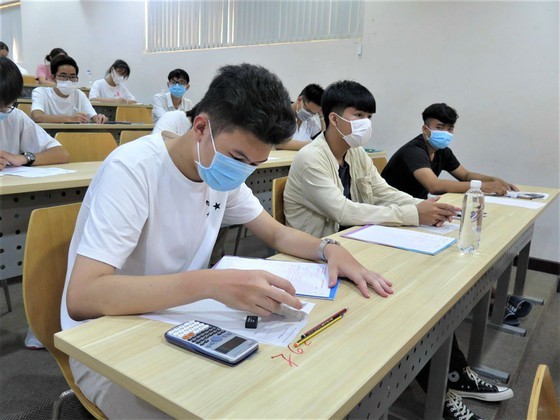
In 2002, MoET formally decided to launch the trio-characteristic university entrance examination (same time, same test, and same result use). After 20 years, there have been three major adjustments to this examination, yet each time unexpected incidents happened, leaving a negative impression to the public.
Dr. Nguyen Duc Nghia, former Deputy Director of Vietnam National University – Ho Chi Minh City (VNU-HCMC), shared that a university entrance exam is critical to the existence of any university. Before 2002, each organized its own one, using its own tests, and results cannot be used interchangeably among different universities.
The above trio-characteristic examination (trio-exam) was applied quite smoothly for 13 years from 2002 since at that time, there were already certain small-scaled, local universities which wished to use the results of entrance examinations organized by major ones like VNU-HCMC. Each year then, about 300,000-500,000 candidates registered for this exam of VNU-HCMC.
Director of the Center for Quality Assurance and Testing (VNU-HCMC) Nguyen Quoc Chinh informed that 2015 was a milestone in the history of university admission in Vietnam as the high school graduation exam and the trio-exam were combined into one, named the 2-in-1 examination. The exam organization stage and university admission screening then became the responsibility of two different entities.
This 2-in-1 exam in 2015-2016 were organized by colleges and universities nationwide. From 2017-2019, this task was the duty of the local authorities. Since 2020, the high school graduation exam has been used to evaluate the quality of school education and recognize high school graduation, still under the responsibility of the localities.
The first serious incident took place in 2018, when 11 educational officials in the three provinces of Ha Giang, Son La, Hoa Binh were caught regarding cheating and raising test scores for 347 papers of the university entrance exam, some of which by 26.8-29.95 points in total. This has made the public suspicious of entrance exam results.
Another issue comes from the pressure of the trio-exam to both candidates and universities. Former Admission Specialist of MoET Nguyen Quoc Cuong recalled that each March was the time candidates failing the exam in previous years came to register for the new exam. There were times his office had to deal with 80,000 documents.
On the test days, hundreds of thousands of examinees came to major cities like HCMC. The hotlines of universities were nearly always overloaded to solve exam-related problems, including lateness due to traffic jams, wrong personal information filling, wrong test delivery.

Former Deputy Minister of Education and Training Bui Van Ga commented that the trio-exam minimized the situation where exam developers organized their own cram classes before the test days to ensure a high passing rate for their learners. Yet this exam created another kind of pressure since the twelfth graders had to experience 4 exams in total, including the high school graduation one. This was such a waste of money, time, and effort of the public.
Former Deputy Director of Phan Thiet University Tran Van Thanh admitted that at that time, most private universities did not register to organize the trio-exam but attracted those failing to enter prestigious universities in Vietnam. They tried to welcome as many candidates as possible, even by using priority points for those under the minimum scores regulated by MoET or transferring students from this to another college. That is another problematic issue.
The 2021 high school graduation exam became the strangest of all when test results were abnormally higher than those of previous years like 2020. Particularly, English subject used to be the one with the lowest result; but in 2021, it was the subject with the largest number of 10-mark papers. That led to unusually high passing scores into universities, with increases of even 11 points. Some candidates got 29.5 over the maximum of 30 but still failed to enter a university.
One last problem is a lack of a standardized question bank for this important examination. The way MoET is developing its standardized question bank does not meet criteria of standardization.
The test writing procedure has not been accredited, objectively and scientifically monitored and evaluated. Most questions are taken from available sample tests of high schools all over the nation, which are hard to be consistent and standardized. Adding to that is outdated equipment and educational facilities for test organization and marking, leading to possible serious errors.
























